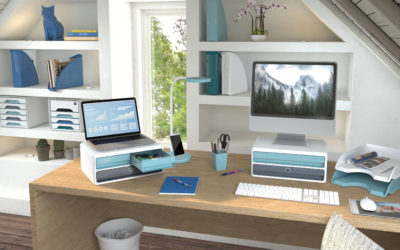Lee Penson, CEO of Penson, a commercial architectural firm which can boast clients from Jay Z to Google, says “life is too short to spend time in dull or inefficient spaces”. Penson believes that office environments are critical to the success of a business.
It’s a case of striking the perfect balance between giving workers an environment they can thrive in, and creating a space that clients will be impressed by. The way we work is changing day by day. With new trends such as hot-desking being introduced, it’s more important than ever that an office caters to a multitude of needs, without neglecting comfort and quality.
Penson stresses the importance of the office environment, stating: “A bad environment is bad for health, team spirit, enthusiasm, passion, drive, ambition, longevity, dreaming, innovation and creativity.
“I’ve overseen large-scale office revamps and the whole personality of the place, and those who inhabit it, transforms almost overnight, for the better. People make business, not equipment – that is the key. How you operate says it all about your business. Bags of personality makes you sell more – and, ultimately, it is the bottom line that matters.”
According to Penson, the steps to achieving the ideal office environment start with being proud of it. “Let your space speak of your character, personality and vibe. Everybody that sees you in your space should leave with a great impression. It’s not just an office space with a logo on a coloured wall […] have the vision to see it as an extension of your personalities.”
A change in office environment can indeed have a positive effect on productivity, in Penson’s experience. “I’ve seen groups of people – up to a scale of 10,000 – change over the course of a month with the arrival of a new building. It is so powerful, this holistic approach, a spiritual change if you will. For me it makes or breaks a business.”
Marc Lawn, a business consultant who has earned the moniker “Business GP” warns that though the office environment is a key factor, other elements should not be ignored in favour of a revamp. “You can have all the mod cons but if the working environment isn’t constructive, then it is a big issue,” he says.
“Environment has a significant effect on work outputs, but all too often people forget that the behaviour and attitude of the staff is one of the biggest contributors, and needs to be monitored by the leadership team (and self-monitored, too) to ensure that the environment doesn’t become toxic”.
Lawn explains the importance of talking and addressing issues, or potential issues, as they arise to maintain a healthy atmosphere within the office: “One client of mine achieved a significant transformation by being able to address the behaviour of an individual who, unknowingly, contributed to significant disruption because of their happy-go-lucky attitude, because it made others resent them and feel like they didn’t care. The individual was mortified by this, because they thought they were lifting spirits, not dampening them.
“I encourage people to think that, generally, people don’t go out of their way to ruin your day, so you need to talk.”








